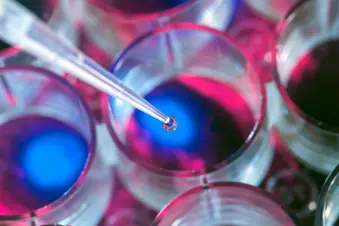
When your child has Duchenne muscular dystrophy (DMD), there’s a lot that their health care team can do to help keep them strong and improve their symptoms. There are medicines that can help. But therapies are a key part of managing life with DMD.
Your child may benefit from different forms of therapy, including:
- Physical therapy
- Occupational therapy
- Supportive therapy
- Swallowing therapy
- Respiratory therapy
- Speech-language pathology
- Psychotherapy, family therapy, or counseling
Your child's therapists should work with their neuromuscular specialist and the rest of their health care team. Together, they can help your child live life to the fullest with DMD.
How Does Physical Therapy Help With DMD?
Physical therapy (PT) is an essential part of care for DMD. Your child should have expert PT checks at least every 6 months. A physical therapist can pick up on any changes over time so they can be addressed with your child's doctors. A physical therapist can help your child:
- Stretch to keep their muscles from contracting
- Keep the ability to move and function
- Manage or limit pain
- Create an exercise routine they can do on their own
- Learn to use any mobility devices, special seating, or other equipment they need
- Recover from injuries
Keep in mind that PT probably won’t restore the ability to exercise or walk. But it’s an important part of keeping the movement, strength, and function that your child has.
How Does Occupational Therapy Help With DMD?
An occupational therapist can help your child with everyday tasks like:
- Eating
- Brushing hair or teeth
- Bathing
- Getting dressed
- Writing
Occupational therapy helps your child work on or relearn the movements to do these sorts of activities. They can also help them learn how to use devices such as walkers or wheelchairs. It may help to have both an occupational therapist and physical therapist who work together with your child over time.
How Does Supportive Therapy Help With DMD?
Supportive therapies that help with DMD include:
- Braces
- Canes
- Wheelchairs
- Walkers
- Standers
- Casts
This type of equipment can help your child get around and continue to do their everyday tasks. Their physical therapist and/or occupational therapist can help them learn the best ways to use these and other assistive devices.
How Does Swallowing Therapy Help With DMD?
Some people with DMD have trouble swallowing. If this happens to your child, a swallowing therapist can help figure out what’s wrong. Once they’ve seen where the trouble is, they can help your child manage issues with swallowing, eating, and drinking.
How Does Respiratory Therapy Help With DMD?
DMD causes muscles to lose strength. This can include the muscles you use to breathe and cough. As your breathing muscles weaken, you may find it harder to cough. Because of this, you may end up with a cough that won’t go away if you get a cold or other virus.
A respiratory therapist can measure your child's breathing function and the strength of these muscles. They can also teach them ways to keep these muscles strong. If they're having trouble keeping their airways clear, these therapists also have techniques and devices that can help.
How Does Speech Therapy Help With DMD?
Many kids with DMD have trouble with language development. If your child with DMD isn’t hitting their language milestones or you think there might be a problem with their speech, a speech therapist can help find out what’s wrong. If there's a deficit or delay, they can help.
A speech therapist can help your child with exercises that help strengthen the muscles they need to talk. They can help them with strategies and equipment to use if their speech becomes hard to understand. All of these things can help your child to communicate in ways that are easier for others to understand.
How Does Psychotherapy Help With DMD?
Coping with any chronic condition, and especially one that gets worse over time, is hard. In addition, kids with DMD often have disorders including:
- Attention deficit hyperactivity disorder (ADHD)
- Learning difficulties
- Intellectual disabilities
- Anxiety
- Autism spectrum disorder (ASD)
Even if your child hasn't been diagnosed with a disorder that affects their mental health or learning, people with DMD often have anxiety or depression. They may find it harder to fit in at school or in social settings. These mental health, learning, and social challenges affect their quality of life.
It’s important for your care team to consider these parts of your child's well-being. Your child's doctors may be able to help or refer you to others who can. Mental health professionals can do tests to identify issues and work on a plan to help with them. Depending on the needs of you, your child, and others in your family, other types of therapy may help, too. These may include:
- Individual psychotherapy or counseling
- Group counseling
- Family therapy
- Support groups
- Academic therapy or special education
- Social skills training
Show Sources
Photo Credit: Andrew Brookes / Getty Images
SOURCES:
Parent Project Muscular Dystrophy: “Rehabilitation & Physical Therapy,” “Learning & Behavior.”
NYU Langone Health: “Therapy for Muscular Dystrophy.”
Cleveland Clinic: “Duchenne Muscular Dystrophy (DMD).”
American Journal of Respiratory and Critical Care Medicine: “Respiratory Care of the Patient with Duchenne Muscular Dystrophy ATS Consensus Statement.”
Dmd-guide.org: “The Diagnosis and Management of Duchenne Muscular Dystrophy.”
Pediatrics: “Psychosocial Management of the Patient With Duchenne Muscular Dystrophy.”